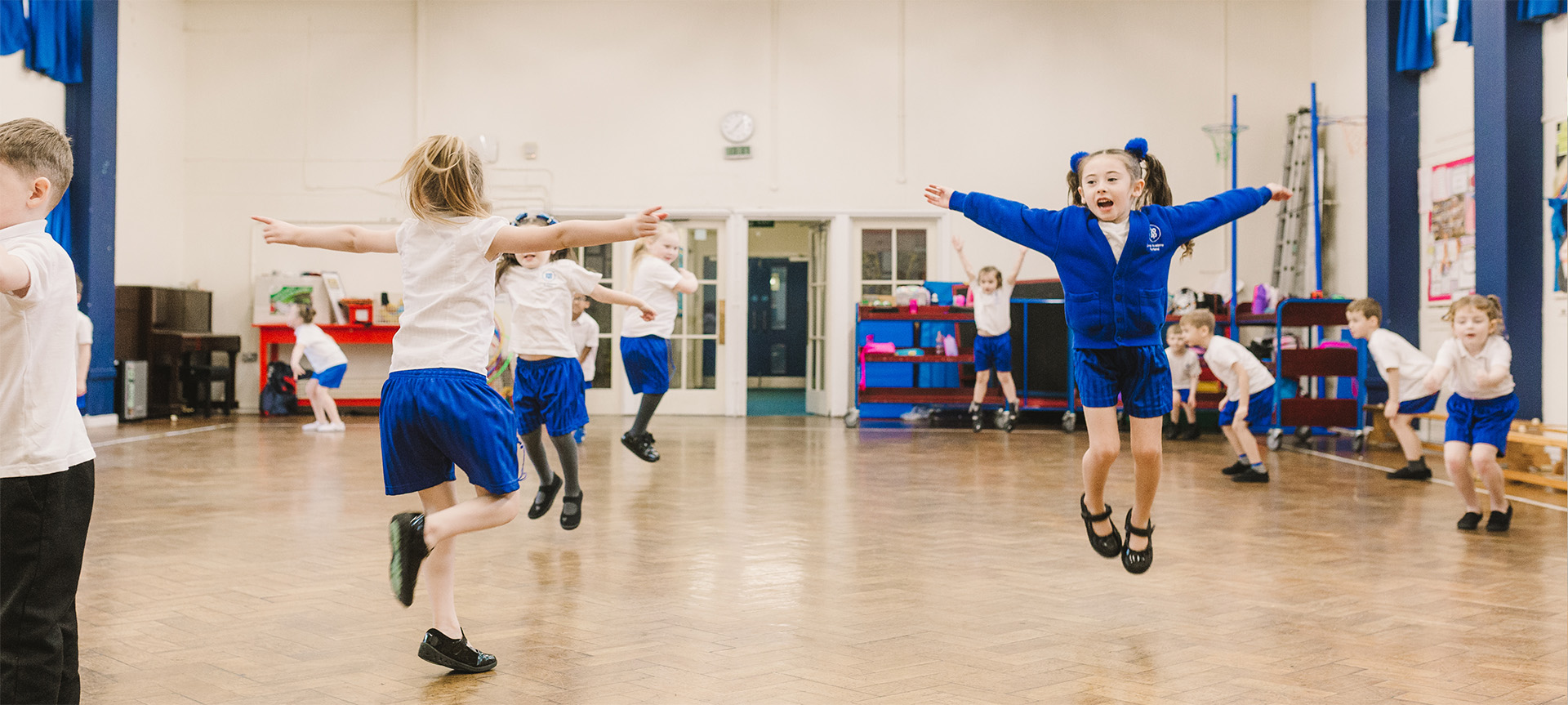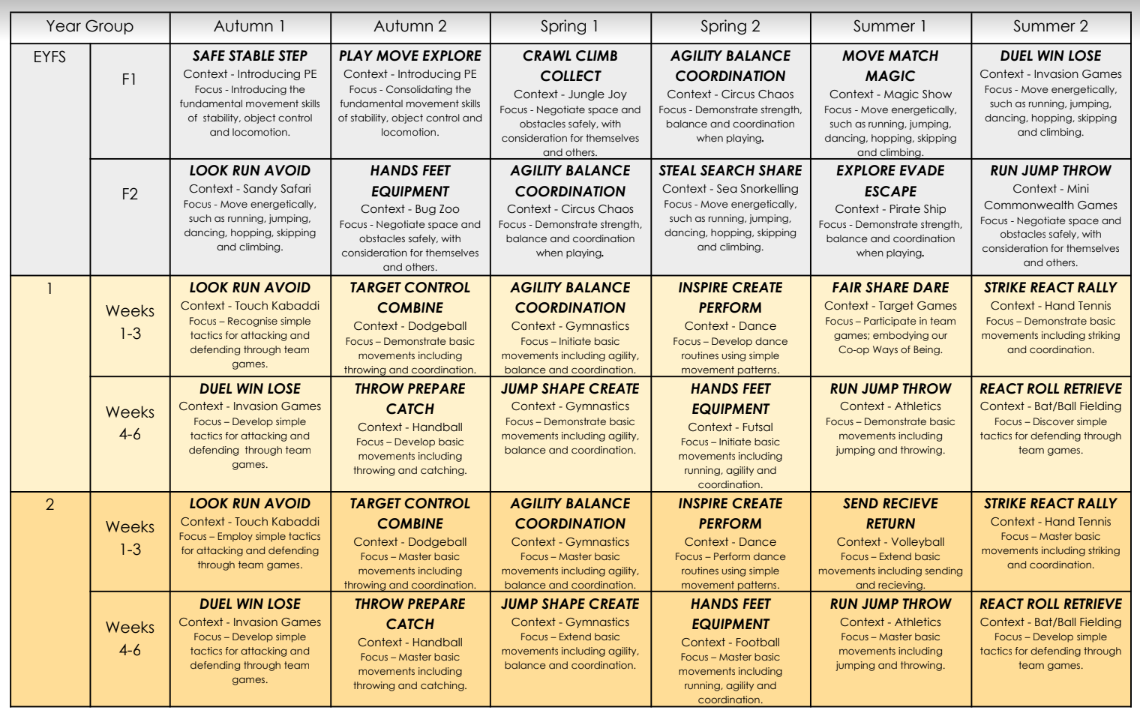Physical Education
The aim of our physical education curriculum is to inspire all pupils to succeed and excel in competitive sport and other physically demanding activities.
We provide opportunities for pupils to become physically confident in a way which supports their health and fitness and provide opportunities to compete in sport and other activities as well as building character and helping to embed values such as fairness and respect.

Through PE lessons pupils will develop competence to excel in a broad range of physical activities; be physically active for sustained periods of time; engage in competitive sports and activities and learn how to lead healthy, active lives.
In line with the National Curriculum, PE at Co-op Academy Portland will cover games, dance, gymnastics, athletics, outdoor and adventurous activities and swimming. All children will be assessed and supported to be able to swim at least 25m unaided.
Children will be encouraged to join school sports clubs and signposted to clubs outside school. The school enriches the PE curriculum through running after-school and lunchtime sports clubs, and inviting in specialist coaches for example: football, tag rugby and karate, so that all children can find a sport to excel in that suits their skills and temperament.
Implementation
At Co-op Academy Portland, we follow the Wirral Scheme of Work for Physical Education. This begins in Foundation Stage where children focus on controlled movement and balance, which are the keystone for all sport. These fundamental skills are taught through games, gymnastics and dance.
In KS1, children develop fundamental movement skills, and are encouraged to become increasingly competent and confident and access a broad range of opportunities to extend their agility, balance and coordination, individually and with others. They are taught to master basic movements including running, jumping, throwing and catching, as well as developing balance, agility and co-ordination, and begin to apply these in a range of activities. They also participate in team games, developing simple tactics for attacking and defending and perform dances using simple movement patterns.
Further on in the school pupils continue to apply and develop a broader range of skills, learning how to use them in different ways and to link them to make actions and sequences of movement. They will be taught to communicate, collaborate and compete with each other. They learn to evaluate and recognise their own success.
The KS2 curriculum covers running, jumping, throwing and catching in isolation and in combination. The playing of competitive games (such as: badminton, basketball, cricket, football, hockey, netball, rounders and tennis) is developed, along with gymnastics, dance, outdoor and adventurous activities (including a residential visit) and swimming.
Impact
Outcomes, observed by teachers in lessons, should evidence a broad and balanced PE curriculum and demonstrate the children’s acquisition of identified key knowledge, skills and understanding. Children are actively encouraged to identify their own target areas for development, while the Wirral Scheme provides an assessment tool which enables teachers to support progression in children’s learning as they move within and between key stages with support from their teachers. Teachers may also record what they have observed in lessons using iPads.



Mr Jenkins is the Physical Education Subject Lead.
